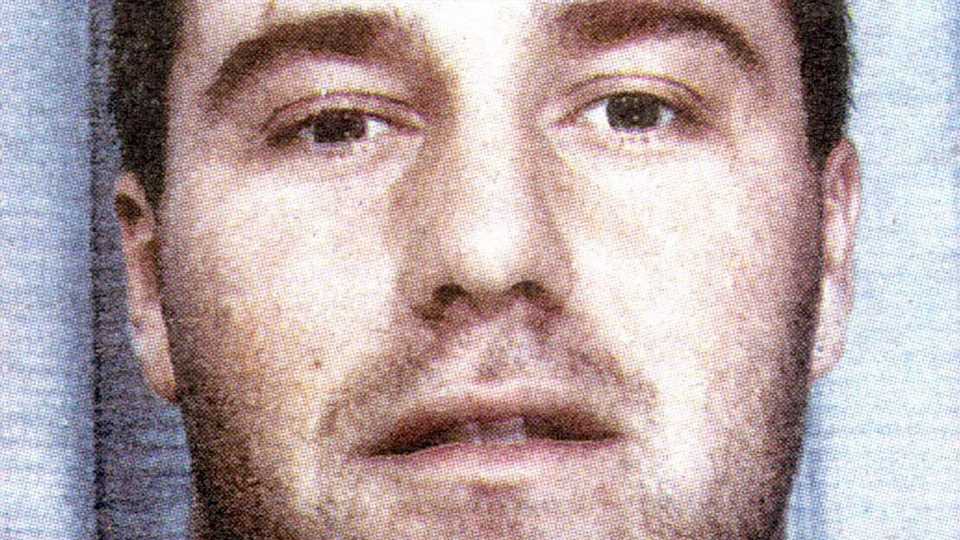PAT TATE was a member of one of the most notorious gangs in British history, the Essex Boys.
In 1995, Tate was found dead on an isolated farm track in Rettendon, Essex, alongside two others.

Who was Pat Tate?
Pat Tate, 37, was a member of the Essex Boys – a gang that operated in the UK during the 1980s and 1990s.
They were mainly involved in drug deals and were thought to be major players in the ecstasy trade that fuelled Britain's booming rave scene.
Other members of the Essex boys included Tony Tucker and Craig Rolfe.
Tate, who was a bodybuilder 'enforcer', suffered from a drug problem according to former football hooligan and bouncer Bernard O'Mahoney.
Read More in News

Fire at ‘UK’s wonkiest pub’ as flames rip through boozer days after it was sold

Lostprophets’ Ian Watkins in critical condition after being stabbed by lags
O'Mahoney told Birmingham Live: ''Tate had a real drug addiction. Look at Tate – he came out after six or seven years inside and within five months he was shot.
"Six weeks after that, he was shot dead. Six months he'd been out and he was shot twice. I'm 60 and I've never been shot.
"It was obvious to everyone who knew them what was going to happen. I was aware of it at the time and kept my distance. It wasn't hard."
Where was Pat Tate from?
According to reports, Pat Tate was born in Upminster, Essex.
Most read in The Sun

Fire at ‘UK’s wonkiest pub’ as flames rip through boozer days after it was sold

Coronation Street legend to return to the soap three years after quitting

Harry & Meg to produce film of novel about parent dying in car crash

Ex-England & Liverpool footie ace signs up for Strictly
In 1995, Tate was found dead in the same county.
What happened to Pat Tate?
Pat Tate, Tony Tucker, and Craig Rolfe died after they were lured to a country lane in rural Essex, in what looked like a professional hit.
The three men, who were sat inside a Range Rover, were shot in the head.
They were found the following morning by a farmer, having suffered multiple gunshot blasts.
The three victims had controlled the supply of ecstasy in the Basildon nightclub Raquels, where tragic Leah Betts had taken the drug.
The teen was left in a coma after taking an ecstasy pill at her 18th birthday party and died 15 days later in hospital.
Her death led to a national outcry about drugs in nightclubs.
Five months after the slaying ex-BT engineer Darren Nicholls was caught with a drug haul.
Nicholls agreed to tell police about who was responsible for the Rettendon murders, and that he had been the getaway driver.
In 1998, two men, Michael Steele and Jack Whomes, were jailed for life for the triple murder that became known as one of the UK's biggest gangland executions, despite protesting their innocence.
Nicholls said Steele lured the trio to the lonely path as on the promise of a drugs deal before Whomes leapt out of bushes and the pair opened fire.
Nicholls was later given a whole new identity and placed in a safe house after providing evidence against the pair.
However, a three-part Sky documentary, The Essex Murders, questioned whether police had the right men behind bars.
Former Met Police detective David McKelvey claimed he had found new evidence on the case.
Mr McKelvey, now of firm TM Eye, believes the new information casts doubt on the convictions.
The lead initially came from a police informant known as 'Witness A' who claims he drove a hitman to the scene of the crime, as revealed by The Sun.
The tapes outline a sinister plot to take out Craig Rolfe, Pat Tate and Tony Tucker.
In a hotel room meeting, the anonymous figure said: “There was an armed robbery. The robbery is the key to it all really.
"It was a van full of cash, £495,000 got stolen. The whole thing was a balls up, if you like, because shortly after some of the robbers went splashing the money. It wasn’t long before everyone knew what happened.
“We got arrested and while we were in jail some of the money was given to Tony Tucker. It was given to him for safe-keeping.
“When we got out we asked for the money back but it wasn’t forthcoming and excuses were made, it’s tied up, this sort of thing, he couldn’t get it.
“By then he was drugged up, steroid upped, running around doing all sorts of business and in the end we knew it (the money) just wasn't coming back.
“He thought he was bigger than anyone. He thought there was nothing anyone could do. But he was wrong. A meeting was held and the problem solved.”
The fixer goes on to admit he paid the money to have them shot, adding: “I wasn’t bothered about the money, the money was irrelevant. It was the principal. Tucker was the target, the other two were collateral damage.”
Investigator and former Det Supt Dave McKelvey told The Sun: “I strongly believe there has been a miscarriage of justice.
“In the years that have passed, Whomes missed seeing his young children grow up while Steele is an old man who has become almost institutionalised.
“Times have moved on so much from when they were first jailed that when I mention social media to Steele he has no idea what I’m talking about.”
Essex Police stand by the convictions.
A spokesperson for the force said: “There has been an exhaustive police investigation into the murders of Pat Tate, Tony Tucker and Craig Rolfe in Rettendon on 6 December 1995, which resulted in the conviction of Michael Steele and Jack Whomes for their murder.
“Since those convictions this case has been back before the Court of appeal twice, in 1999 and 2006.
"These appeals have included focus upon the evidence of Witness A and the credibility of the key prosecution witness in the original trial.
"Both appeals were rejected and in 2006 Lord Justice Kay commented that there was no “element of unsafety” relating to the original convictions of both defendants.
"This case has also been reviewed by the Criminal Cases
Review Commission who, as recently as January 2023, took the decision not to refer this case back to the Court of
Appeal.
Read More on The Sun

Inside Paris Fury’s relatable life – from days out with her 6 kids to B&M trips

EastEnders legend unrecognisable 25 years after shock soap exit
"We welcome this decision as this case has been exhaustively examined over the last 27 years and there remains no fresh evidence identified which would call the original verdicts into question.”
The triple murder inspired the 2000 film Essex Boys, starring Sean Bean, and The Rise of the Footsoldier franchise.
Source: Read Full Article

